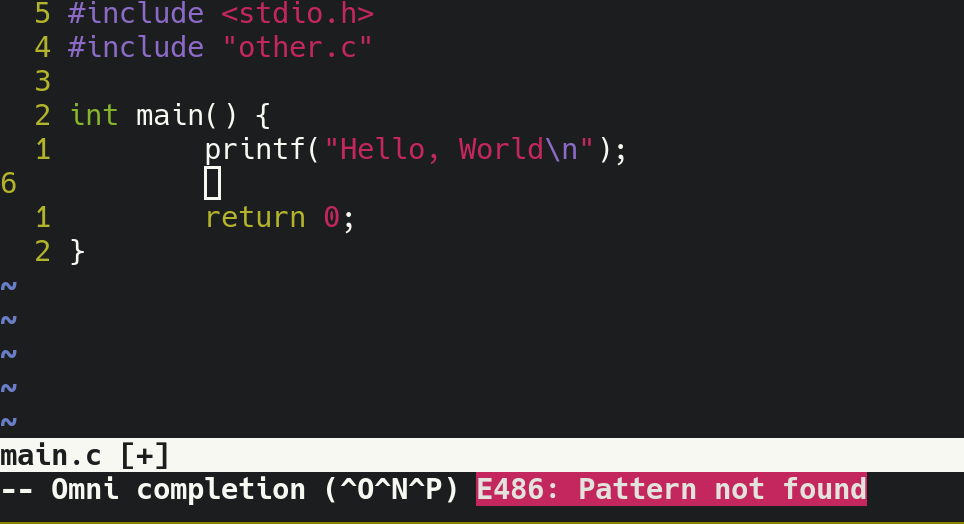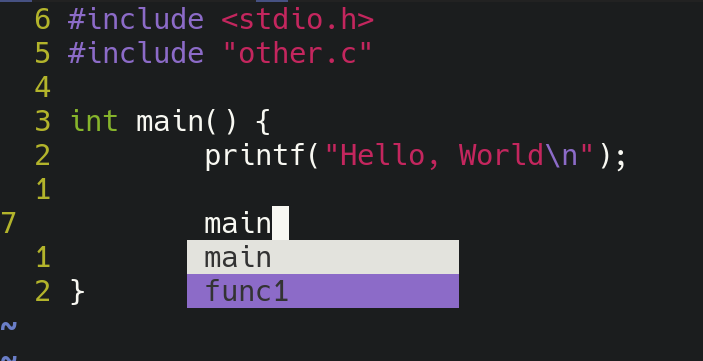<C-x><C-o> returns Pattern not found in C/C++ files even with a ctags file.
- It used to work and I haven't made any configuration/plugin changes that I know of
- Starting vim with
vim -u NONE -U NONEand manually settingomnifunc=ccomplete#Completeresults in the same problem (as doesvim --clean), so it doesn't seem to be caused by my vim config - Python and HTML omnicomplete still works, so the problem seems to be with the tags file
<C-]>and<C-x><C-]>still work and complain when the tags file is removed, so the tags file seems to be fine??- I'm using Gutentags with Universal-Ctags in Vim 8.2 to automatically generate the tags file (tried a stock Neovim config as well and still the same error)
Any ideas what the problem could be or how I could go about debugging it?



it doesn't seem to be caused by my vim config-u NONE results in skipping all plugins and entering compatible mode. No way your plugin-based completion can work under these circumstances. So your test is totally worthless.